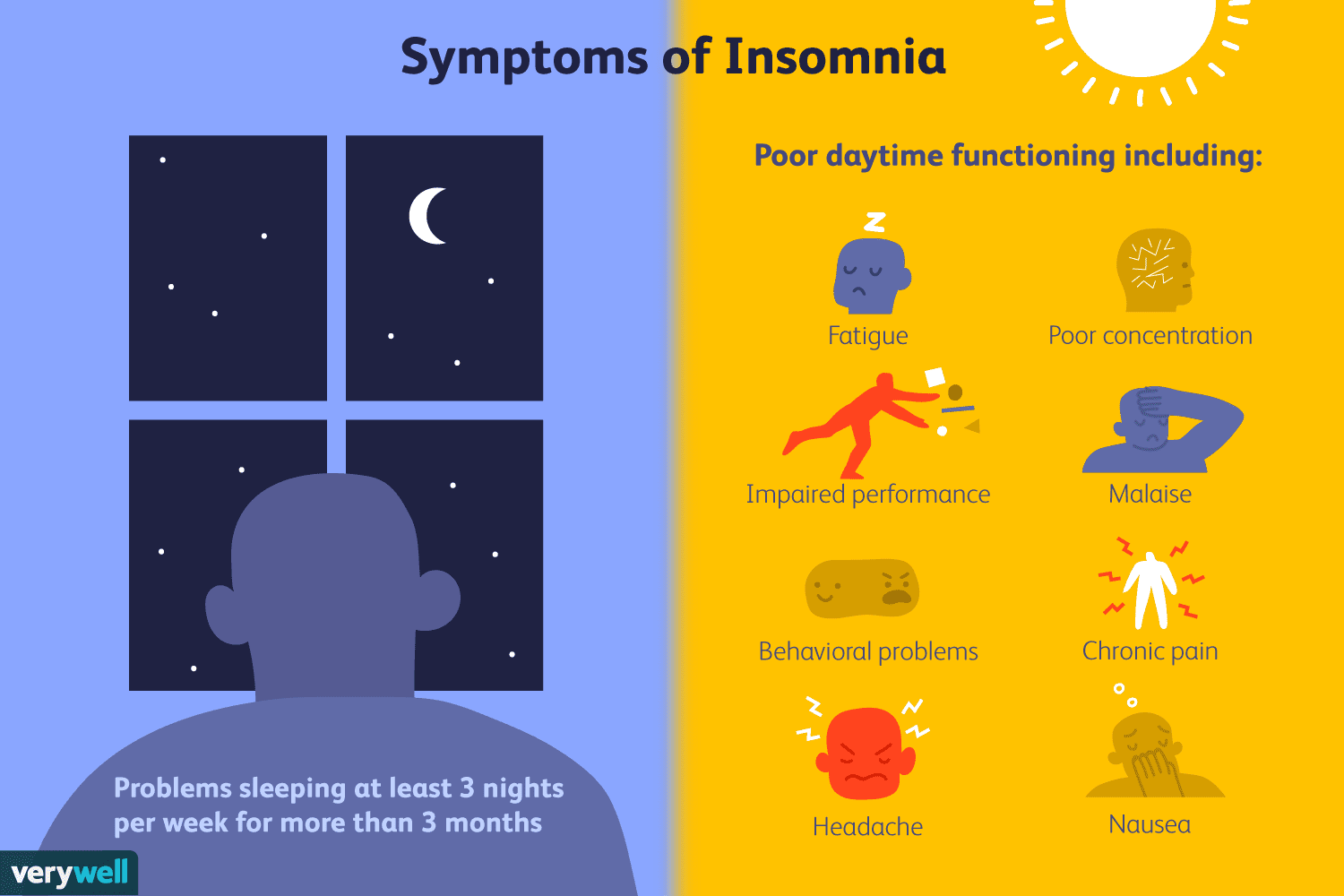Improve Insomnia : Understanding the Causes and Symptoms
To improve insomnia, it’s crucial to first understand why it happens. Insomnia isn’t just an occasional sleepless night; it’s a persistent issue that can severely affect your health. Here are some of the most common causes and symptoms of it:
- Mental Stress: Anxiety, depression, and stress can keep your mind racing at night, preventing restful sleep.
- Poor Lifestyle Choices: Irregular sleep schedules, late-night screen time, excessive caffeine intake, and poor eating habits can all disrupt your sleep cycle.
- Environmental Factors: An uncomfortable sleeping environment—whether it’s too noisy, too bright, or an uncomfortable mattress—can be a major contributor to insomnia.
Identifying these factors is the first step to improving insomnia. Once you understand the causes, you can address them directly with effective methods to restore your natural sleep patterns.
Improve Insomnia: The Impact of Chronic Sleeplessness
If left unchecked, insomnia can lead to serious health consequences. Chronic insomnia affects more than just your mood—it can undermine both your physical and mental health:
- Weakened Immune System: Prolonged lack of sleep weakens your immune defenses, making you more susceptible to illness.
- Mental Health Issues: Anxiety, depression, and irritability often accompany insomnia, making it harder to cope with everyday challenges.
- Decreased Cognitive Function: Insomnia can impair concentration, memory, and decision-making, negatively affecting productivity and safety.
Improving it isn’t just about getting more sleep—it’s about protecting your overall health and well-being.

Improve Insomnia : 5 Effective Ways to Sleep Better
1. Stick to a Consistent Sleep Schedule
- One of the most effective ways to improve it is to establish a regular sleep routine. Going to bed and waking up at the same time each day helps train your body’s internal clock, making it easier to fall asleep and stay asleep.
2. Create a Sleep-Friendly Environment
- To improve insomnia, it’s essential to optimize your bedroom for sleep. Keep the room dark, quiet, and cool. If noise is an issue, consider using earplugs or a white noise machine. Additionally, invest in a comfortable mattress and pillows to support restful sleep.
3. Avoid Stimulants Before Bed
- Reduce your intake of caffeine, alcohol, and nicotine in the hours leading up to bedtime. These substances can interfere with your sleep and make it harder for your body to relax.
4. Practice Relaxation Techniques
- Relaxation exercises such as deep breathing, meditation, or gentle stretching can help calm your mind and body before bed. These practices reduce stress, which is a major contributor toinsomnia.
5. Seek Professional Help
- If your insomnia persists despite self-care efforts, consider consulting a healthcare provider. Cognitive Behavioral Therapy for Insomnia (CBT-I) and other therapeutic treatments can help address underlying sleep disorders effectively.
Start Sleeping Better Today
Improving insomnia doesn’t have to be a difficult or lengthy process. By making simple lifestyle changes and improving your sleep environment, you can gradually overcome sleeplessness and start enjoying better rest.
If you’ve been wondering, “How can I improve ?” now is the time to take action. Incorporating these practical strategies into your daily routine will help you reclaim restful nights and wake up refreshed and ready for the day ahead. Don’t let it control your life—take steps now to restore your healthy sleep.
more information:HERE
